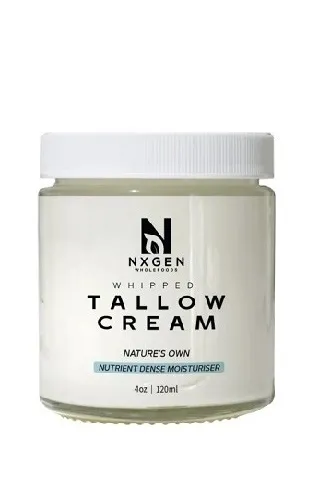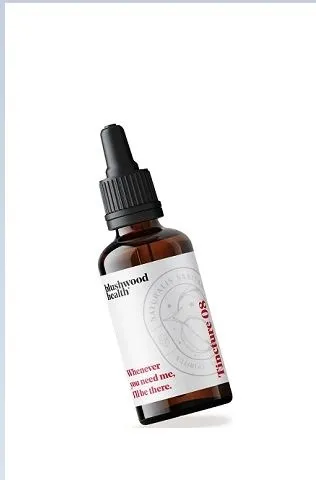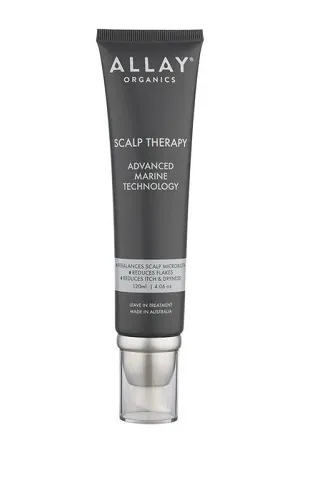
Collagen
Nutritional Information
The following ingredients are found in 14 grammes of collagen peptide (supplement):
Calories: 50
Fat: 0 grams
Fibre: 0 grams
Protein: 12 grams
Carbohydrates: 0 grams
Sugar: 0 grams
Collagen peptide contains 29 milligrammes of calcium, 44.9 milligrammes of sodium, and 0.98 milligrammes of potassium in the same amount.
What does your body require to produce collagen?
Collagen is made in the body spontaneously by mixing amino acids, which are the building blocks of proteins. Your body requires the following to create collagen:
- Proline- Proline is an amino acid or a protein building block. Proline is produced by the body, but it is also ingested through the diet. Proline is found in roughly 5 grammes per day in a regular diet. Protein-rich foods, such as meat, fish, and dairy, are the main sources. Proline is also available as a dietary supplement.
- Vitamin C- Vitamin C is a necessary nutrient that must be included in one’s diet. Fresh fruits and vegetables, particularly citrus fruits, are good sources of Vitamin C.
- Glycine- Glycine is an amino acid or a protein building block. Glycine is produced by the body, but it is also consumed through the diet. Glycine is found in roughly 2 grammes per day in a regular diet. Protein-rich foods such as meat, fish, dairy, and legumes are the main sources. Supplementing with glycine is also an option.
- Copper- You might associate copper with wiring and electronics, but it’s also a vital mineral that you consume through seafood, nuts, vegetables, fruit, cocoa powder, sesame seeds, and other foods. It’s necessary for your development and overall health.
- Zinc- It aids in the healing of wounds, as well as your senses of smell and taste, and is essential for the development of infants and toddlers. Beef, lamb, pig, seafood, chickpeas, lentils, beans, milk, cheese, and a variety of nuts and seeds contain it.
What Are the Health Benefits of Collagen?
There are various health benefits of collagen. Some of them are discussed below:
- Skin health can be improved– Collagen is a crucial component of your skin’s structure. It strengthens the skin and may improve elasticity and hydration. As you get older, the production of collagen in your body declines. This results in dry skin and wrinkles. Collagen peptides and supplements, on the other hand, have been shown in several trials to aid in the reduction of skin ageing by reducing wrinkles and dryness. They may also encourage the creation of other proteins that support skin structure, such as elastin and fibrillin. Many anecdotal claims that collagen supplements can prevent acne and other skin disorders exist, but they are not backed up by scientific research.
- It has the potential to prevent bone loss– Collagen is a protein that provides your bones structure and helps them stay strong. Bone mass deteriorates with age. This could lead to disorders like osteoporosis, which is marked by reduced bone density and is associated with an increased risk of bone fractures. Bone disintegration leads to osteoporosis. It has been demonstrated in studies that collagen supplements can reduce bone disintegration. Women were given either a calcium supplement with 5 grammes of collagen or a calcium supplement with no collagen for a period of 12 months. The women who took the calcium and collagen supplement had much lower blood levels of proteins that promote bone disintegration by the conclusion of the research than those who merely took calcium.
- Thicker Hair– While more men become bald as they get older, many women also experience hair loss or thinning. A group of women with thinning hair had significant increases in the quantity, scalp covering, and thickness of their hair when taking daily collagen supplements, according to one study.
- Aids in the relief of joint pain– Collagen helps to keep your cartilage, the rubbery tissue that protects your joints, in good shape. With age, the amount of collagen in your body declines. It increases your chance of developing degenerative joint conditions like osteoarthritis. Several studies have shown that collagen supplements can aid with osteoarthritis symptoms and general joint pain reduction. According to studies, supplemental collagen can gather in cartilage and stimulate your tissues to create collagen.
- Healthier nails– Some people’s nails break more easily and grow slower than others. After only four weeks of daily collagen supplementation, a sample of women experienced faster nail development and fewer damaged or chipped nails.
- Could help you gain muscular mass– Collagen makes up about 1–10 per cent of muscle tissue. It is required for your muscles to remain strong and functional. Collagen supplements have been shown in studies to benefit persons with sarcopenia or the loss of muscular mass that occurs as people age. According to a study, collagen may boost the production of muscle proteins like creatine and promote muscular growth after exercise. More research is needed to see if collagen can help people gain muscular mass.
- Improves cardiovascular health– Collagen supplements, according to research, may assist to lower the risk of heart disease. Collagen gives your arteries, which transport blood from your heart to the rest of your body, structure. Arteries can become weak and fragile if they don’t get enough collagen. Atherosclerosis, a disease marked by artery narrowing, may result as a result of this. Thirty-one healthy adults were given 16 grammes of collagen daily for six months in one research. A reduction in measures of arterial stiffness was noticed in them by the conclusion of the study, compared to before they started taking the supplement.
What are the various types of Collagen?
There are 28 different forms of collagen. However, according to resources, kinds1, 2, and 3 collagens are the most prevalent in the body, and these are the collagens that are promoted in product marketing. Because there are so many different varieties of collagen, we’ll just go through the three most common ones and where they’re found in the body.
- Type 1 collagen is the most common type found in the skin. Tendons, bones, ligaments, teeth, and other connective tissues are also affected
- Type 2 is located in the eyes and makes up cartilage.
- Type 3 collagen is found in the skin, as well as muscles and blood vessels. It is often referred to as the “baby collagen” because of its significance in the development and early newborn life.
What can you do to boost your collagen levels?
There is a slew of companies vying for your attention by promising to raise collagen levels by topical application, supplementation, or food. Here’s everything you need to know about each of the ways in which you can boost your collagen levels.
- Through food-
- Bone broth is by far the most popular and effective method of boosting your collagen levels, naturally. This method is thought to extract collagen by boiling animal bones in water. Season the broth with spices to add taste when cooking it at home.
- There’s a reason why chicken collagen supplements are so popular. You’ve probably seen how much connective tissue chicken contains if you’ve ever sliced up a whole bird. Chicken is a good source of dietary collagen because of these issues. Chicken neck and cartilage have been employed as a source of collagen for arthritis treatment in several research.
- Fish and shellfish, like other animals, have collagen-based bones and ligaments. According to some, marine collagen is easily breakable and therefore absorbed by the body with ease. However, while a tuna sandwich for lunch or salmon for dinner can surely boost your collagen intake, keep in mind that the “flesh” of fish contains less collagen than the less appealing portions.
- Vitamin C is essential for the formation of pro-collagen. Citrus fruits like oranges, grapefruit, lemons, and limes are high in their collagen content. For breakfast, try a refreshing fruit salad with lots of oranges and lemons.
- Though citrus gets all the attention for its vitamin C levels, berries are also a good source. Strawberries provide more vitamin C than oranges. Raspberries, blueberries, and blackberries are also high in antioxidants.
- Garlic can give your stir-fries and pasta dishes more than simply taste. Collagen production in your body receives a boost by the consumption of garlic.
- Beans are high in protein and often include the amino acids required for collagen formation. Moreover, several varieties of beans are high in copper, which is another component required for collagen formation.
- One medium tomato, a hidden source of vitamin C, can give up to nearly 30% of this crucial component for collagen. Tomatoes are also high in lycopene, a potent antioxidant that helps the skin.
- Despite the fact that eggs do not contain connective tissues like many other animal products, egg whites do contain a significant quantity of proline, an amino acid required for collagen formation.
- Cashews are high in zinc and copper, both of which help the body produce collagen.
- Gelatin is a type of collagen that is manufactured by boiling animal bones, cartilage, and skin for several hours and then cooling and setting the liquid. Gelatin is formed when these connective fibres break down. Certain dietary programmes, such as the paleo diet, boost collagen and its byproduct, gelatin.
- Through creams and oils– Pro-collagen lotions on the market claim to smooth wrinkles and reduce the indications of ageing. These have synthetic collagen in them, which traps moisture into the skin and gives it a plumping look. Retinol and tretinoin are topical therapies that have been clinically proven to increase collagen production. Antioxidants, such as vitamin C, can also aid in the repair of inflammation that damages the collagen in the skin.
- Through oral supplements– The majority of collagen supplement research is focused on joint and skin health. Although there are few human studies, few randomised controlled trials have discovered that collagen supplements increase skin suppleness. In other studies, the supplements were proven to improve joint mobility and reduce joint discomfort in those with osteoarthritis or athletics. Oral collagen supplements, particularly the sort of collagen found in powders, are “promising” when it comes to reducing the appearance of ageing, according to research published in the Journal of Drugs in Dermatology.
What are the lifestyle changes that can be adopted to protect the breakdown of collagen in your body?
- Wear sunscreen or restrict your exposure to direct sunlight (10-
 20 minutes in direct midday sunlight 3-4 times a week provides adequate vitamin D for most people).
20 minutes in direct midday sunlight 3-4 times a week provides adequate vitamin D for most people). - Avoid both active and passive smoking.
- Reduce your stress. Cortisol levels that are too high for too long can reduce collagen formation.
- Make sure you get enough rest. This equates to 7-9 hours of sleep every night for the average person.
- Although the specific link between exercise and skin quality is unknown, certain studies have found that exercise reduces ageing skin cell activity.
Final thoughts
Collagen supplementation has a lot of health benefits. To begin, supplements may help to improve the health of your skin by minimising wrinkles and dryness. They may also help with the development of muscular mass, bone health, and joint pain reduction. Many other benefits of collagen supplements have been mentioned, but they haven’t been thoroughly investigated. Although collagen can be found in a variety of meals, it’s unclear whether eating collagen provides the same benefits as supplements. Collagen supplements are generally safe, simple to use, and well worth experimenting with because of their potential advantages.
Vitamins:
Other beneficial natural products:
Other Products:
-

Organic Whipped Tallow Cream 120ml
$34.50Add to cart -

Blushwood Berry Seed Extract EBC-46 Tincture
$120.95Add to cart -

Scalp Therapy Advanced Marine Technology Allay Organics
$48.50Add to cart -

Organic Cordyceps Militaris Evolution Botanicals
$72.99Add to cart -

Turkey Tail Mushroom Super Foods
$79.99Add to cart -

Cordyceps Mushroom Forest Superfoods
$89.00Read more
[bmi]
